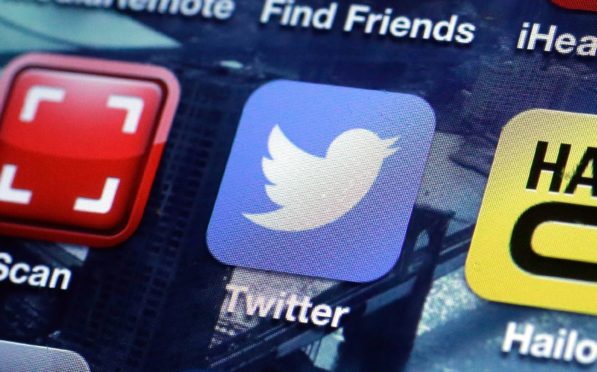This weekend sees football clubs all over the country withdrawing from social media activity in response to vile racist and other abuse of players and staff.
An empty gesture may be better than no gesture at all, but for me that’s all this is: too shallow an attempt to tackle a very deep rooted problem.
The bigots who indulge in ugly and repugnant online behaviour learn it in the family or among like-minded cretins.
A major process of education to obliterate bigotry and racism from society, both online and generally, is needed, but it needs tougher action than a puny weekend ban on Twitter can achieve.
Dundee United will join a UK-wide campaign and cease social media activity from 3pm on Friday 30 April until 23:59 on Monday 3 May as #FootballUnites against discrimination and online abuse.
— Dundee United FC (@dundeeunitedfc) April 29, 2021
Unless clubs and authorities show much more determination to eradicate the bile from these bitter and twisted individuals, they’ll simply turn their attentions elsewhere for a few days.
The keyboard warriors feel safe behind their pseudonyms and that has to change.
Social media platforms must ban anonymity so that accountability for all users is explicitly part of their deal.
Football and all of us on social media should henceforth also refuse to interact with anyone who wishes to hide behind a curtain of concealment.
We will cease activity on social media from 15:00 BST on Friday 30 April to 23:59 BST on Monday 3 May #thedee https://t.co/fk7QIHZWpZ
— Dundee Football Club (@DundeeFC) April 29, 2021
Football players already exist in a tough world where for some, uncertain career prospects and fragile mental health go hand-in-hand.
One aspect of those mental frailties is an inability to be open and share problems in case it’s seen as a sign of weakness.
That doesn’t affect just young players at a club – it can affect all ages and coaching staff too.
This isn’t a plea on behalf of so called “snowflakes”.
Anyone can be subjected to this grim litany of bitter and twisted behaviour.
St Johnstone will be joining Clubs across Scotland in stopping all social media activity on all platforms from 15:00 on Friday until 23:59 on Monday 3 May.#FootballUnites
— St. Johnstone FC (@StJohnstone) April 29, 2021
Along with some other journalists and broadcasters I received a grim barrage of vile online abuse in 2013 over the Rangers liquidation issue.
Despite years of experience in the game, even I was shocked to the core at the hate and vitriol spewed out online.
Football players’ wealth and status are no defence against the sick minds perpetrating these vituperative and venomous volleys of abuse.
A millionaire superstar or a part-time player can be equally affected by attacks on their race, colour, religion, or any other area targeted by foul minds.
Social media is a great tool for players and clubs to communicate with fans in a modern world, but the cost is becoming too high.
Scottish football unites to support social media boycott#FootballUniteshttps://t.co/ijZM10NvKB
— Scottish FA (@ScottishFA) April 28, 2021
I know one senior football figure in this area who has withdrawn from using it due to the torrent of abuse he received.
This is too big a problem for the police, who simply do not have anything like the numbers of staff or expertise required to deal with this burgeoning societal problem.
The football bodies, through FIFA, UEFA, national associations, and leagues, must work with governments to ensure that social media platforms and individuals are held responsible for dangerous, defamatory and abusive content.
If clubs really want to make their point effectively then they should withdraw for a whole season.
That might cost them serious money, but otherwise, this paltry weekend disengagement is simply virtue signalling at only marginal cost.


